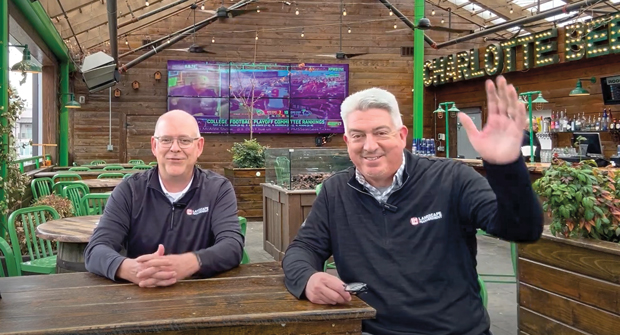I don’t typically like to ask readers to immediately skip all the way to the end of the magazine, but this issue, I encourage you to make your way to the “words of wisdom” section at the bottom of the Backstory department. This month the advice is delivered by Jessica Milligan, general manager and vice president of Strathmore Integrated Grounds Management in LaSalle, Quebec.
One of her insights—“to stop being frustrated by people’s ‘lack of common sense’”—stuck out to me as excellent advice, possibly because it’s in sync with a concept I hope to focus on in the new year.
Have you heard of “The Four Agreements,” from the book of the same name by Don Miguel Ruiz? (Confession: I haven’t read the book, I’ve only read about the agreements.) They are simple precepts the author says will bring happiness and peace of mind. I bought in quickly to the ideas, which apply to so many situations in our personal and professional lives.
The four agreements are:
1. Be impeccable with your word. I’ve asked a lot of landscape business owners what their best business advice is for others. Without a doubt the most common reply is, “Do what you say you’re going to do.” It’s essentially the same message. Remember, this rule applies to the commitments we make to ourselves. On another level, this agreement reminds us to use our words only as a positive force.
2. Don’t take anything personally. On a business trip last month, I talked with a former small business owner who told me that owning a company had “hardened” him because of the many times he was taken advantage of by employees and clients. He said he’s more guarded because of these experiences, but he didn’t seem upset, and I asked him how that could be the case. He said he realized none of the offenders were out to get him personally. It’s a relief to remember that other people’s actions are never about us.
3. Don’t make assumptions. This is the agreement that reminds me of Milligan’s advice. We cannot assume common sense—or anything, really. Instead of being disappointed about someone else’s behavior, it’s up to us to communicate better to avoid misunderstandings. We also can’t assume we have all the sides of every story. We must ask better questions to get to the root of problems.
4. Always do your best. Like the others, this one is simple but not necessarily easy to follow. If we strive for our best, understanding that “our best” sometimes changes based on the circumstances, we’ll avoid disappointing ourselves and others.
I’ll add to the last agreement something I’m working on: to believe others are doing their best—to give people the benefit of the doubt. Do they deserve it? Maybe not. Are they always doing their best? Who knows. But I once read that although it feels safer to judge people and assume the worst, we’re happier when we believe people are doing their best.
To me that feels like advice worth taking, and I intend to focus on it and the four agreements in 2018. Happy New Year.

